Project Management Software: 7 Best Tools in 2024
Project management tools have proved their worth over the years. Present-time project managers wouldn't know how to begin their days without a clear view of who is doing what, how much time has been spent on each project, and how close the whole team is to fulfilling their assigned responsibilities.
That said, only 32% of the surveyed executives believe that investing in the right project management technology is an influential factor for team success. No wonder only 35% of the interviewed project managers were "somewhat or very satisfied" with the systems they were working on.
This means that decision-makers haven't fully realized the relevance of working with the right project management software and how a simple tool could accelerate every single process happening at their companies in a record time.
Therefore, this article aims to explore the best project management tools in 2024 so every manager and team member can discover which software and features are exactly what they need to take their performance to the next level.
What Is Project Management Software?
Project management software is used for planning, scheduling, and handling projects. They include several features, such as task management, collaboration, file sharing, and time tracking.
Project management solutions allow managers and employees to see their progress on each task. It gives everyone in the team a detailed summary of the actions needed for each project, including deadlines, requirements, and people assigned.
In other words, project management software is designed to help teams work more efficiently by establishing an order that everyone can visualize whenever in doubt.
5 Benefits of Project Management Software
The Project Management Institute (PMI) defines project management as “the use of specific knowledge, skills, tools, and techniques to deliver something of value to people.” According to studies, 77% of high-performing teams worldwide use project management software to help teams track their progress.
By integrating all this wisdom and structure into a practical platform, there is no wonder that more companies are integrating new strategies into their workflows. Here are a few examples of the benefits brands can enjoy from using project management tools in their daily activities:
1. Efficient project planning
Poor planning is the primary reason why most business projects fail. Without a clear step-by-step approach to how your team will complete a project, things can easily get out of hand. Project management software can help by giving project managers the power to schedule and delegate tasks to employees.
2. Resource management
Resource management is another important benefit of using project management platforms. With resource management, project managers can properly manage how the business uses its time, energy, and materials. This is crucial in ensuring each project is well-staffed and does not experience any delay. Resource tracking software tools can help you a lot in this process.
3. Better collaboration and teamwork
Teams that work closely together and share common goals are often the most productive. Project management tool solutions allow you to collaborate with everyone involved in the project whether it’s team members, freelancers, or clients. As a manager, it’s your job to make collaboration easy for all the people working together on the same project or task.
4. Accountability
Accountability in the workplace encourages employees to do their best in each task they are given. Without accountability, frustration will build up, and projects won’t move forward. Top project management software can improve accountability by ensuring everybody on the team knows their roles and responsibilities on a given project.
5. Risk management
Every project has a risk of failure. But without precautions, your business wouldn’t be able to identify and minimize the impacts of failure in the long run. A project management solution can help mitigate risks by giving managers important insights about the project as it’s being done.

How to Choose the Best Project Management Tool
Your project management technique is only as good as the tool you use. In this section, we’ll help you choose the most suitable project management solution for your needs. Here’s a step-by-step guide to finding the right software for you:
1. Reiterate your business goals.
Business objectives should be the compass of every action taken by your team. Make sure that the tool you acquire can integrate the metrics you need to measure success
2. Get feedback from the team.
Users of the project management platform should be considered in the decision-making. Their insights during free trials and demos will be crucial to determine if the tool suits your needs.
3. Research project management solutions.
With so many alternatives at your disposal, it is imperative to analyze, compare, and test all the project management tools that seem appropriate with the proper care.
4. Know your budget.
Project management should never be a financial obstacle. Make sure your budget matches the desired solution before concluding the decision-making process.
5. Finalize and start implementation.
The onboarding process says a lot about the purchased solution. Your team should be able to feel comfortable with the tool from day one.
Grow Your Business With CIENCE
Top Project Management Software in 2024
Today, there are already tons of project management software suited for all kinds of business. Here are our top picks for the best project management software list in 2024:
1. Monday.com
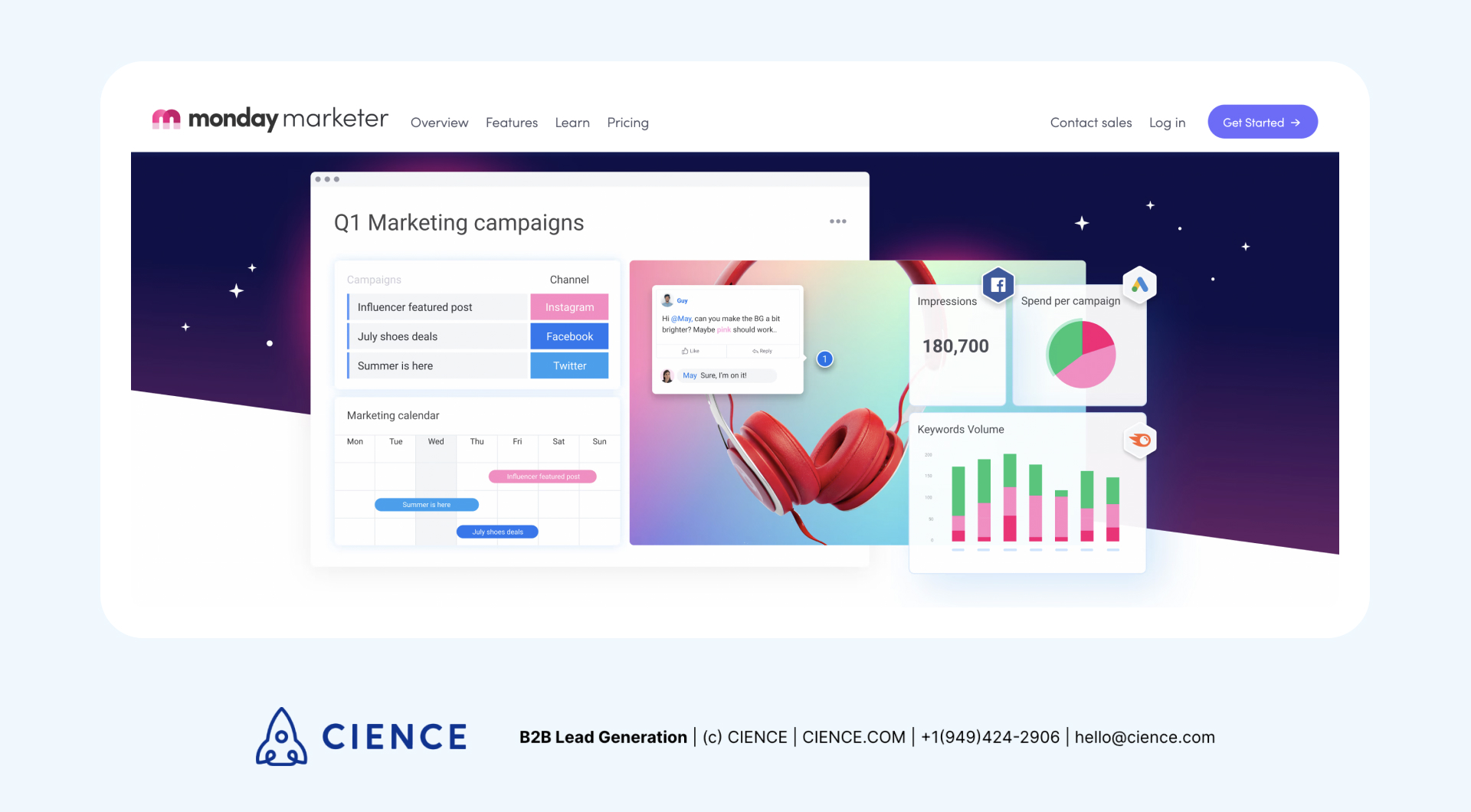
Monday.com is a cloud-based project management software designed to promote better collaboration, communication, and project planning. It lets you manage your project workflow efficiently and allows for seamless communication among team members.
Monday.com’s block features help managers create different types of workflows for their teams. They can also include useful features such as widgets, board views, task automation, integrations, and more. Another great thing about monday.com is its visually appealing dashboard and interface. If you like modern UI, this project management tool will fit your taste the most.
Along with its core work management platform, Monday.com also offers four niche products including a CRM platform for sales teams, Monday dev for developers, Monday marketer for creative teams, and Monday projects for PMOs.
Pros: Modern interface, customizable features, good visualization tools, free trial
Cons: Limited task tracking, non-intuitive UI design, a bit pricey
2. Wrike
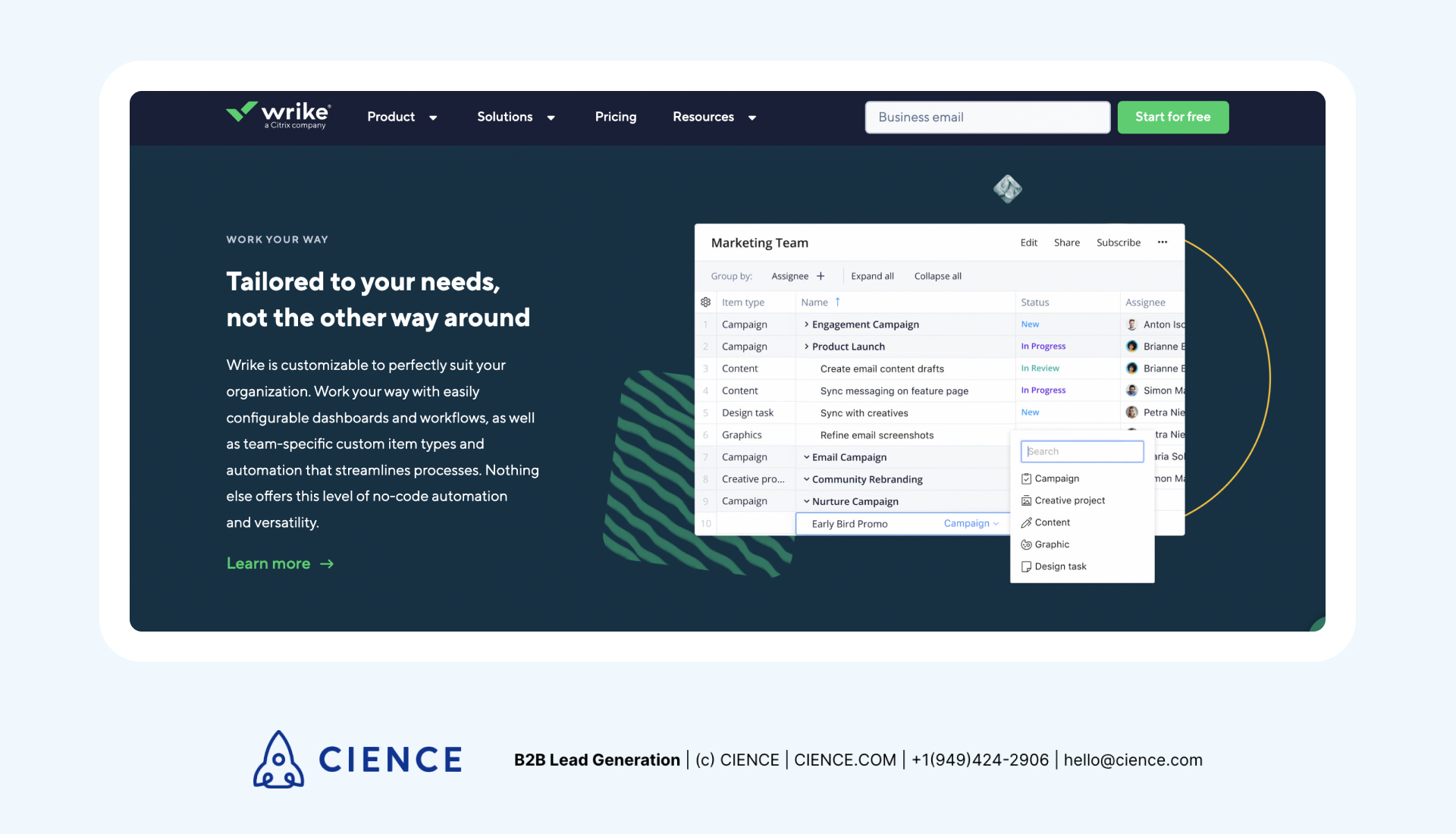
Wrike is a project management system suitable for both small and large businesses. It can help you manage and track projects with features designed for small teams, marketing agencies, and professional firms.
Wrike’s file-sharing options also make it easy to collaborate and monitor projects in real time. You can see who’s currently working on a certain task, who might need help or are stuck, and who’s on time and about to finish their work.
With Wrike, project managers can also choose to create different project tracking solutions, including Kanban boards, lists, Gantt charts like combo chart, and more. Wrike does a great job of managing projects for large teams but can be a bit expensive for start-ups and small to medium-sized businesses (SMBs).
Pros: User-friendly dashboard, robust app integrations, versatile, free version available
Cons: Steep learning curve, pricey premium plan, lacks live chat and video calling features
3. Asana
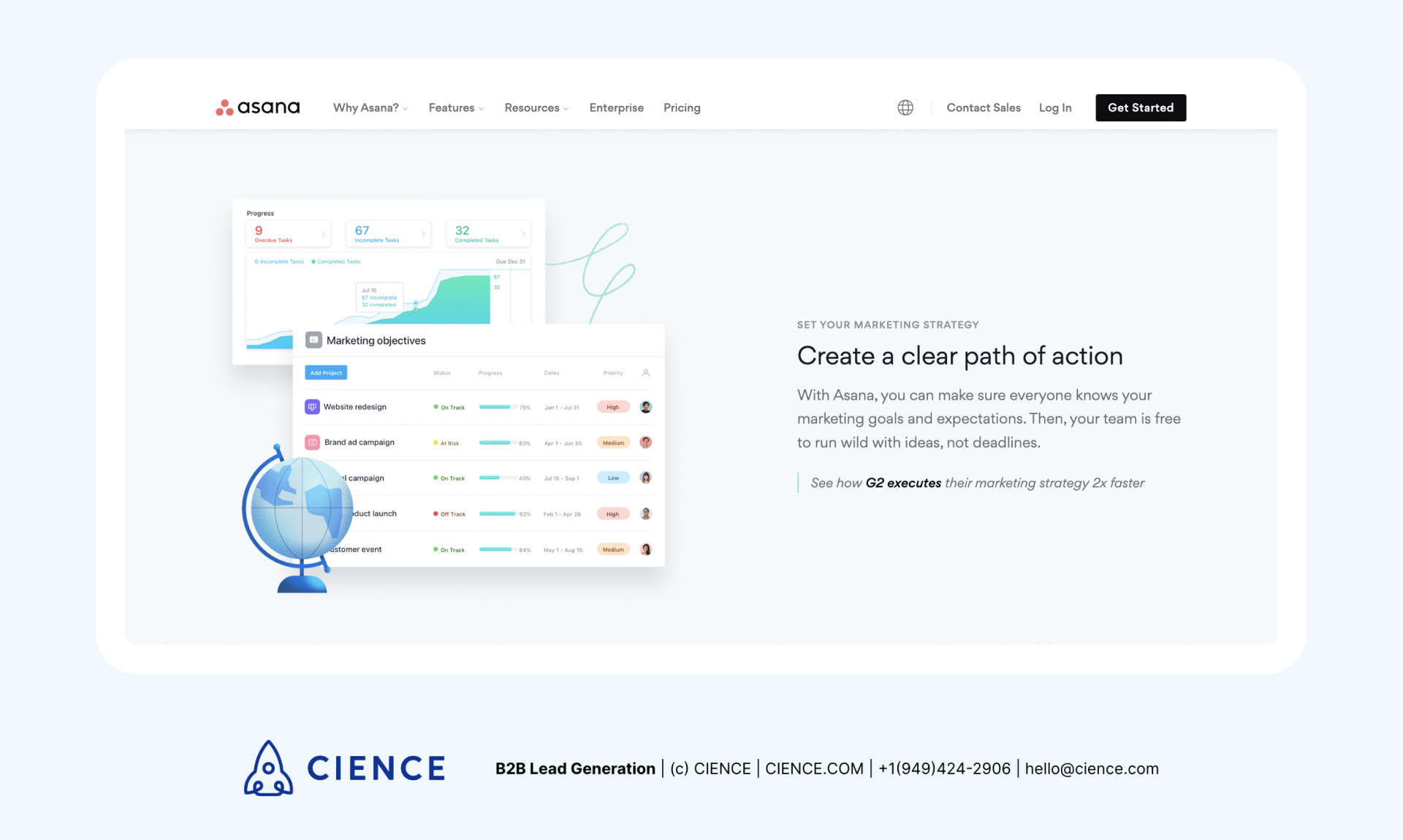
Asana is a project management and collaboration software that helps teams easily manage tasks. It’s not just a tool for project managers; Asana is a solution for everyone to be able to streamline tasks for each project.
Asana’s functions encourage team members to tailor their workloads based on their ability. Its workload monitoring is helpful in cultivating a culture of accountability and excellence in the workplace. Overall, it’s a tool that empowers everyone, not just the project manager, the boss, or the client.
With Asana, teams can track projects, oversee workflow, and manage different types of projects. Teams stay organized, connected, and on top of their current tasks and projects. Asana also has tons of amazing features that are best for remote teams and service-based businesses.
Pros: Easy-to-use, third-party integrations, extensive collaboration tools, free plan available
Cons: No advanced time-tracking features, export limited to CSV and JSON
4. ClickUp
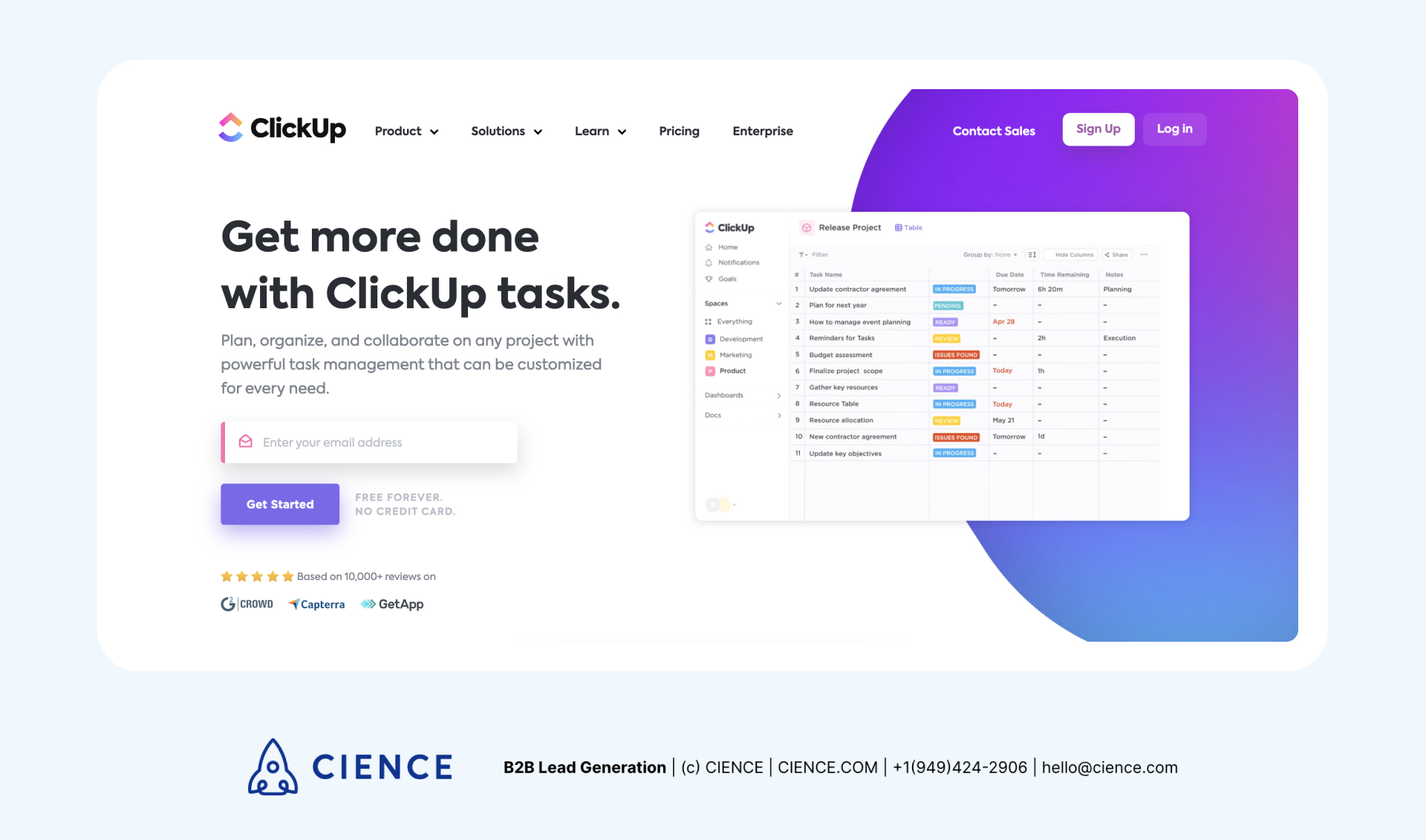
ClickUp is an affordable productivity and project management tool designed to help teams collaborate, brainstorm, and plan together.
With ClickUp, teams can easily structure their workflows and plan their tasks routinely. It has several collaboration features as well as shared task functions that help teams work and see their progress for each task. They are able to match workflow, see project updates in real time, and enjoy complete visibility over each team task and account. You can also migrate tasks easily from one integration to another.
ClickUp is like a centralized hub where teams can plan, collaborate, and work together using one platform. No matter how big or small your team is, you can find ClickUp’s features incredibly helpful.
Pros: Affordable plans, project management software for teams and individuals
Cons: Limited storage for the free plan, no reporting and cloud access on the free plan
5. Trello
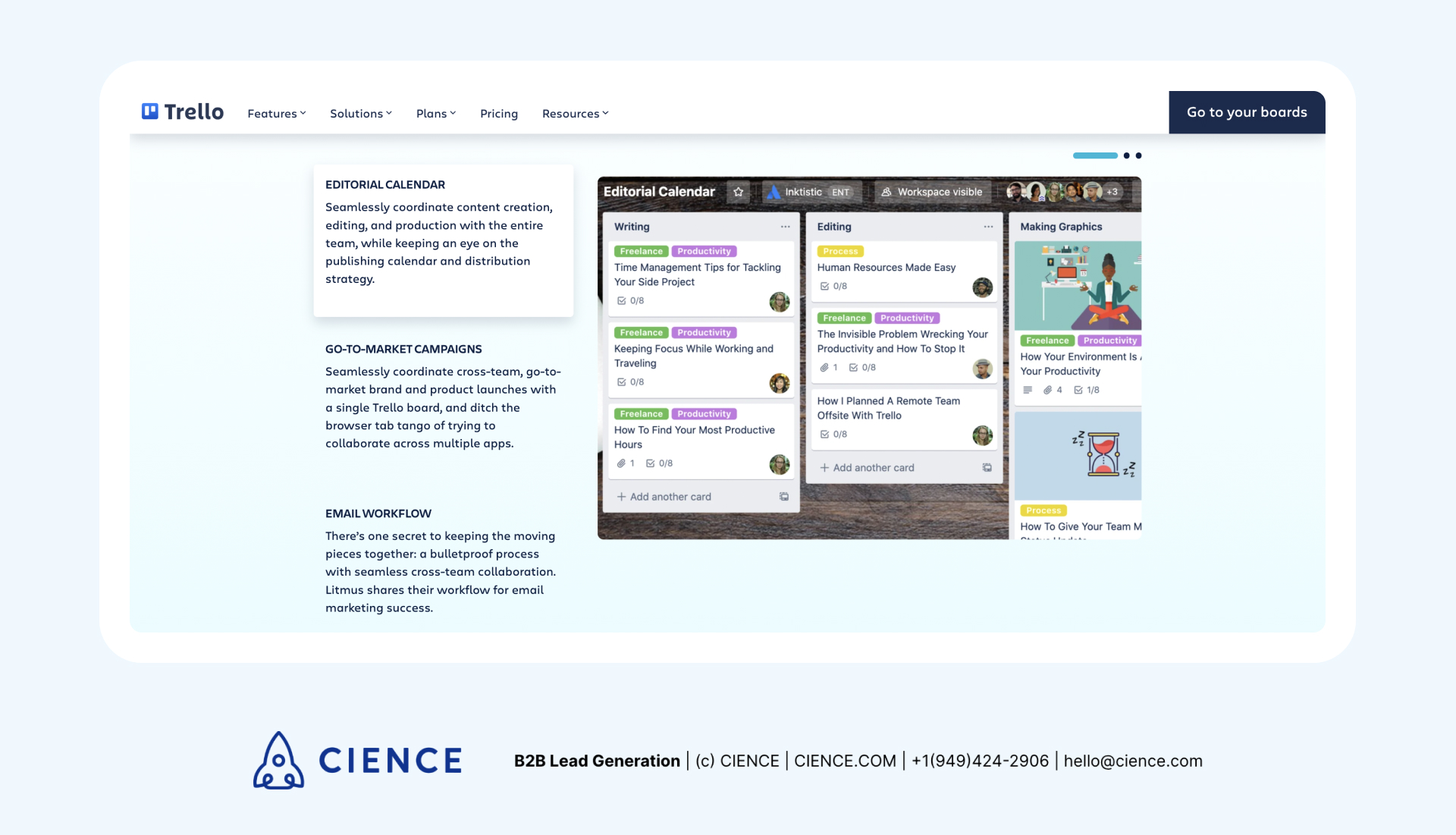
This collaborative Kanban-focused tool helps teams stay on top of their workloads while viewing their team’s progress on a colorful board timeline. Ever since it launched, Trello has been a popular tool and is used by many workplaces around the world.
At its core, Trello is a simple project management software featuring a drag-and-drop Kanban board that allows you to visualize progress in your workflow. Trello’s advantage is its eye-catching and customizable boards that can make collaboration fun for teams.
Pros: Detailed customization features, mobile-friendly, amazing Kanban system
Cons: No offline access, not suitable for large projects, limited attachment size
6. Zoho Projects
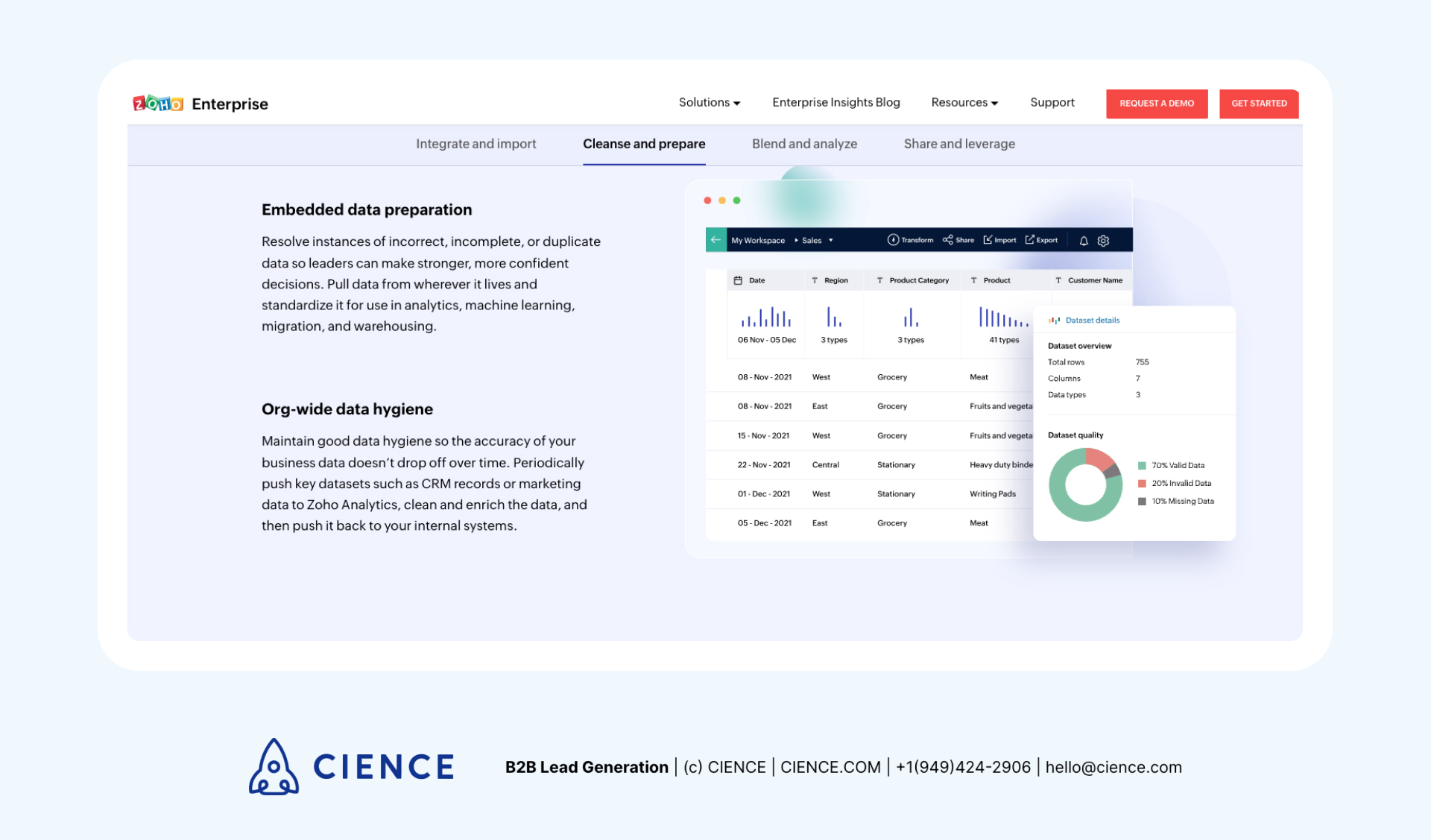
Zoho Projects is a cloud-based project management application designed for small and growing businesses.
With Zoho, you can carefully plan each project and design a workflow for your team. Projects can be broken down into the smallest tasks so you can get as detailed or specific as you want. It also allows for communication between teams and clients.
If you don’t have a lot of budget for a good project management app, Zoho can be your first option. For just $10/person per month, Zoho delivers time tracking, resource management, and budget tracking all in one software.
Pros: Easy to set up, time-tracking capabilities, amazing workflow tools, good customer support
Cons: No templates, high-learning curve, limited dashboard functionalities
7. Basecamp
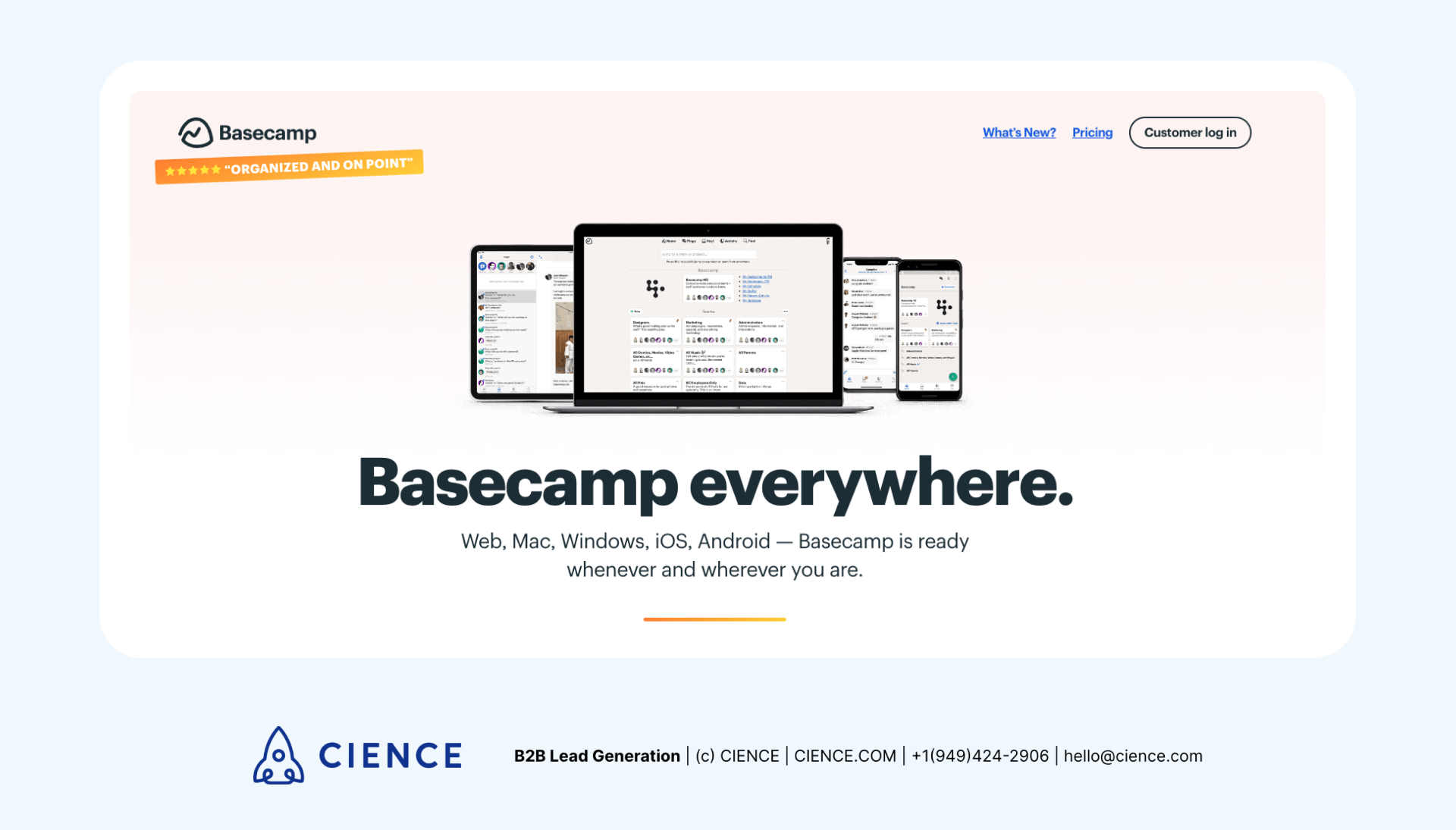
Basecamp is a project management solution created primarily for remote working. It’s an all-in-one solution for remote teams to collaborate together on one platform. Basecamp is a web-based platform that includes its own messaging tool, messaging board, and scheduling.
With Basecamp, teams can view the progress of their projects through browsers or apps. One of its strengths is its versatility. Basecamp can be used by any type of business and even freelancers. The plans are also scalable and can be upgraded as your business grows.
Pros: Data backup, no per-user fee, calendar syncing
Cons: No prioritization tools, no time tracking tools, limited customization, advanced features
Use Project Management Tools to Boost Results
The project management platform you decide to go with should align with your business requirements. Let your team members guide you through their needs and get their feedback to ensure the chosen software is meeting all expectations.
Collaboration is vital for success. People desire clarity of the responsibilities, processes, and time frames to do their jobs effectively. Provide them with an essential tool that helps them organize their daily actions into a step-by-step plan and watch your team’s productivity and performance flourish.
